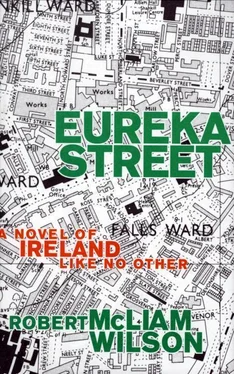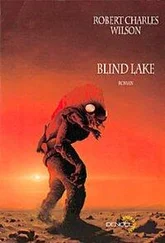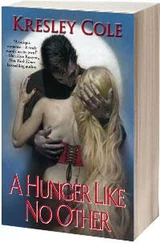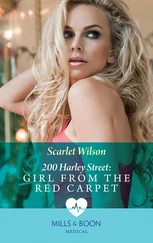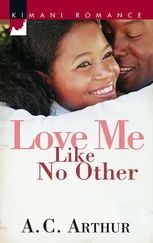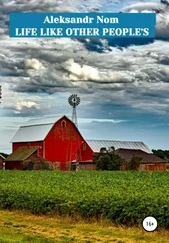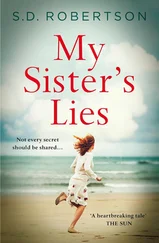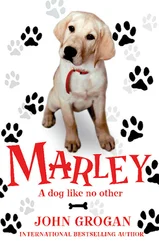As I stood under the imperfectly warm water, I heard the unmistakable bang of my front door. I had known perfectly well that Roche would leg it while I was in the shower. That was why I had had the shower in the first place. No cowardly ruse was beneath me. Guiltily, I soaped my testicles.
The rest of that evening was grim. Roche had left behind all the stuff I'd bought for him. He had, naturally, stolen my new ex-Eureka Street television and VCR but he had rejected my gifts. I was not surprised. It was his style. I knew he'd nick them. I hoped it might make me feel a little better. It did.
Nevertheless, I felt so bad about the kid I even forgot to think about Sarah's letter, my new prosperity or how much I disliked Aoirghe, a subject upon which I had dwelt of late. My cat wisely avoided me. I listened to the radio for hours. Roche had pinched the major electricals, after all. It was all news on the radio that night, what with the ceasefire and all. I didn't bother switching it off. In the previous twenty-four hours, there had been five fatal shootings and seventeen kneecappings. The IRA had cleared its backlog of murders and punishment shootings while it still could. How charming of them. How confidence-inspiring.
After four or five hours of this, I grew so depressed that I went outside to clear my head and breathe some air. It was another warns night and I sat there on my step for an hour, trying not to think about ceasefires or twelve-year-old boys with domestic problems. Sometimes, Belfast looked like the past, remote or recent, the confident Protestant past. I couldn't see how any of its fires would cease.
How did I feel about the big-deal ceasefire? It was news. It was event.What did it mean to me and the tiny group of mine?
Sitting on my step that night I felt three things.
First of all, I felt as though Belfast had finally given up smoking. A twenty-five-year-old hundred-a-day habit had just stopped. I dreaded the withdrawal.What were we supposed to do with our afternoons now? How were we going to look cool?
Then I felt fury. Nothing had changed. The boys in the skimasks had called it a victory but their situation was exactly the same as it had been a quarter of a century before. Three thousand people had died, countless thousands had had bits blown or beaten or shot off, and all of the rest of us had been scared shitless for a significant proportion of the time. What had this been for? What had been achieved?
Additionally, I couldn't help thinking that if I was husband, wife, father, mother, daughter or son to any of the twenty-seven who'd died in the last eight days I'd have been highly fucking miffed at the timing of this old armistice.
Actually, I felt four things. I also felt like they'd start it all again any time they time they got pissed off or menstrual.
As I began to think of going back inside I saw a girl walking alone on the road at the junction of my street. A trio of skin heads was walking towards her. The girl noticed them and quailed. Her step veered to the edge of the pavement. Her head drooped and she tried to make herself small. I shared her fear but there was nothing I could do. She was almost jogging by the time the rough boys drew level.
As I had dreaded, one of the youths put out an arm and grabbed her. She stopped, terrified, her arms thrown up to ward off a blow. One of the velvet-heads bent down to pick something up. He handed her the thing I hadn't seen her drop and the three boys walked on.
It wasn't much, I knew. It was only a small event but suddenly Belfast seemed again a place to be.
Because, sometimes, they glittered, my people here. Sometimes, they shone.
In the high-capacity car park outside the shopping mall, Chuckie Lurgan sat behind the wheel of a rented Subaru watching the lugubrious women sitting silently in their cars. It was 9.3o a.m. and, although it was summer, the air was cold. Chuckie was beginning to find American mornings beautiful. On his only morning in New York City the light had been early but already tired, the sun on the buildings smoky and dry, like it didn't have enough gas to get through the day. But the Kansas version of 9 a.m. was enchanting. The ground frost breathed up its wisps like a landful of cigarettes.
Chuckie wound down his window and looked up at the sky. He knew that it was getting thinner. The ozonosphere was degrading at a rate that negated replenishment. The earth was being dug up and scattered with corrosive filth. The seas were being fished out and the people were growing everywhere. Every day a hundred species became extinct. (Chuckle had been watching an environmental TV programme the night before and found himself newly concerned. What had previously seemed the worst kind of style-free tree-hugging now seemed crucial to father-to-be Lurgan.)
Chuckle felt that his skin was crackling and warping under the toxic light of the unfiltered sun. In ten years he felt that he would be bald and shrivelled with radiation. The planet, too, would lose its hair and juice. His own city would warp and buckle. Desert Belfast, dry and dead. He found his eyes begin to water.
He was waiting for Max. She was in the mall deli trying to buy chocolate croissants. At breakfast, that morning, she had mildly desired these croissants. Though he thought it absurdly early in her pregnancy for cravings, Chuckie had strenuously insisted that they drive the twenty miles to the nearest deli. She had grumbled but had complied.
After the old lady had told him about Max's pregnancy, Chuckie had spent a couple of days in his hotel room. For thirty hours he had contemplated fatherhood amongst the cloistered plastics and nylons of the little roadside motel. Then he slept for ten hours, rented a car and drove out to see Max.
When he drove up she was sitting on a rocking chair on her porch. The gentle motion of her chair did not falter as he got out and approached her. His heart failed and surged a hundred times in that thirty-second walk, but Max, Max looked serene. Max looked like she had expected him.
He mounted the porch and stopped a few steps from her chair. She looked blankly at him, rocking gently back and forth. There was no welcome in her eyes but there was no refusal either. The Ulsterman took the initiative.
`Marry me,' said Chuckie Lurgan.
It grew dark and chilly out on the porch while they talked. Max told him about the secret thing that had happened to her when she had run away after her father's death. At the end of those two missing years, she had found herself pregnant and too stoned to know by whom. She promised herself that she would have an abortion but, somehow, she never seemed to get around to it. It was a drag to organize, the telephones, the doctors and the clinics. She didn't have the money. She didn't have the time. There were occasions, late at night, just as she was falling asleep when she knew well that she was leaving it late. But the bid was always warm and it was always nice just to dream the bloody thing away so that she would wake up slim-bellied, unfertilized.
But she left it late past the legal termination date. She was six months gone when she finally decided to give it a go.
But that night she and a retired boxer from Tulsa had a party with some cheap crack. Her arm rested on the bump of her belly as she slotted the needle there. She knew exactly what she was doing but she did it anyway.
The people in the hospital had said bad things to her. She remembered one doctor. A young man, unshaven and weary. His voice had been gentle and he had smiled but she had been startled at the thing that she had seen in his eyes. She saw the shame he felt for her.
She had hit him and scratched his face with her ragged nails. A big nurse had rescued him, thumping her back onto the bed. She called Max a dirty whore, pronouncing it broad in the Southern fashion, making it a much uglier word… hoor.
Читать дальше
